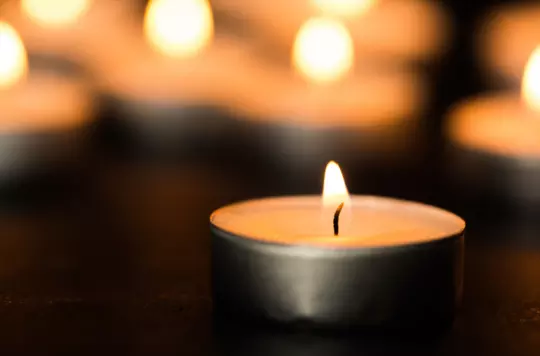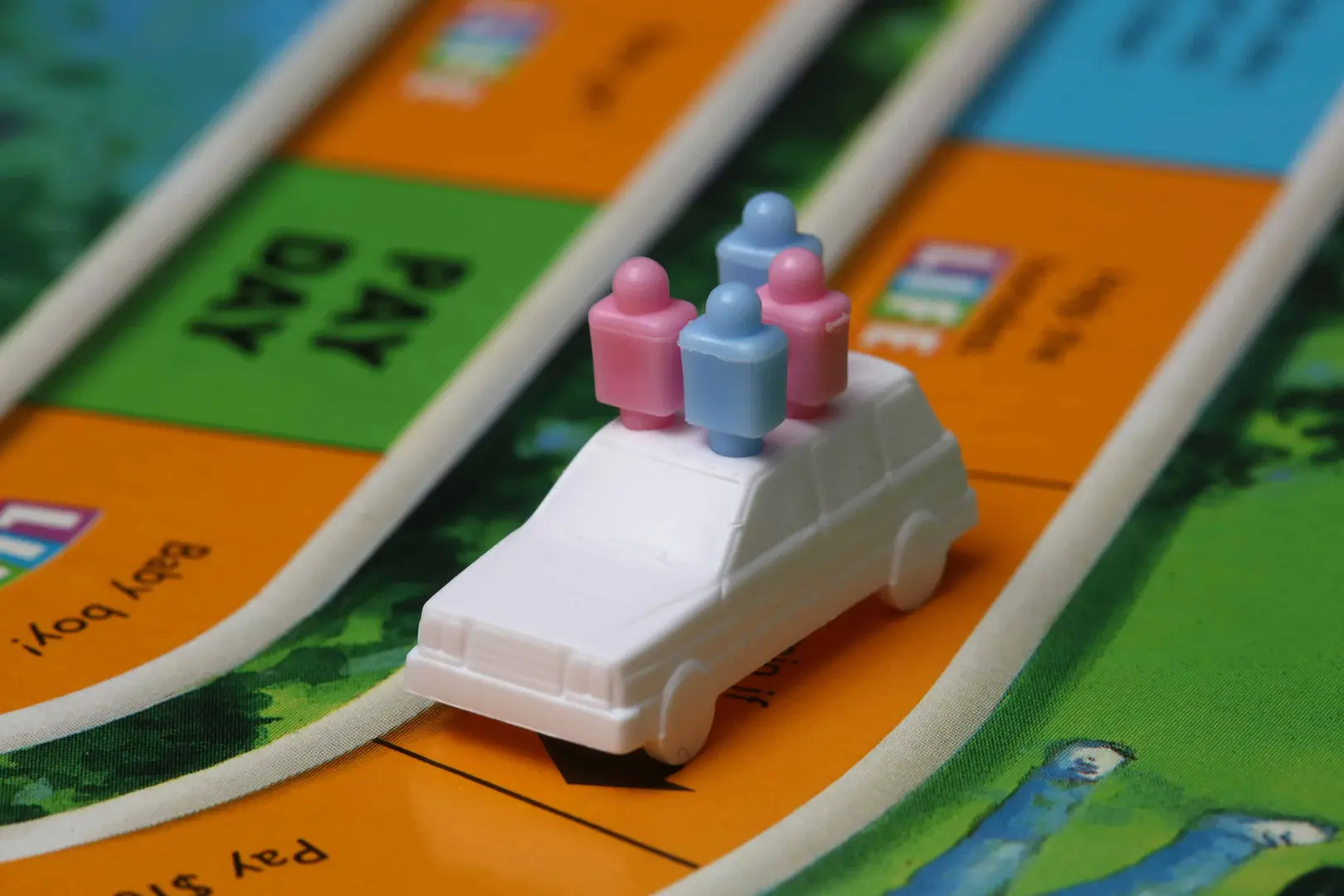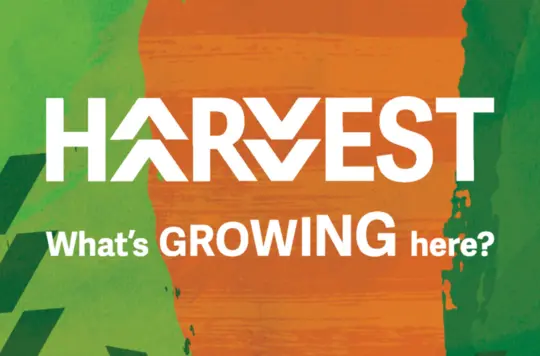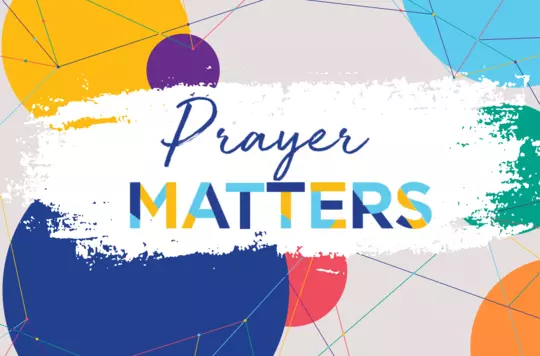4 October 2025
Matthew 6: Store up heavenly treasure!
Captain Berri McKenna
Captain Berri McKenna encourages us to invest in eternal values.
Key texts
Our children, aged eight and five, have reached the stage where we can finally enjoy ‘proper’ board games together. Games like Snap and Happy Families have been set aside for ones that teach real lessons about winning, losing and strategy.
A favourite in our house is The Game of Life – a whirlwind journey through career choices, home ownership and wealth building, all wrapped up in under an hour. It gets competitive as each of us tries to win by amassing the most money and achievements. But here’s the funny thing: what do we do with our amassed pile of money, degrees and houses at the end of the game? We stick it all back in the box. It gets packed away. It counts for nothing.
In a sense, The Game of Life might be how many of us are tempted to approach life itself. We, too, might be tempted to invest our time and energy into chasing things that go back in the box one day. Yet, some things in life really do matter. There is stuff that outlives us and that matters on an eternal level.
It’s this truth that we see in Jesus’ words in our study passage. Jesus instructs his followers: ‘Do not store up for yourselves treasures on Earth, where moths and vermin destroy, and where thieves break in and steal. But store up for yourselves treasures in Heaven’ (vv19 and 20).
Here, Jesus is urging those who would be his disciples to ensure that all of their priorities are reordered around God’s Kingdom. What we treasure reveals what we love most, and what we love most directs the course of our lives.
Pause and reflect
- If someone were to look at how you spend your time, money and energy, what would they say you treasure most?
- If your heart is tethered to your treasure, what are you truly living for?
Jesus challenges his listeners – and us by extension – to consider what is really important. To help, he uses three images designed to present contrasts and help us make the best choice.
The first contrast is earthly treasure versus heavenly treasure (vv19–21). Here, Jesus explains that earthly treasure is fragile. Clothing wears out, wealth can be stolen, markets collapse, homes deteriorate. This is something we’re all aware of. Even the most secure possessions can be lost in an instant.
In the ancient world they would store up their equity, valuable goods or currency in the home, as it was perhaps the safest place. Yet even here they would be subject to decay and at risk of being stolen. By contrast, heavenly treasure is eternal. Acts of love, generosity, prayer, obedience, service and faith in Christ are investments that cannot be destroyed or stolen. These are things in life that matter and don’t get packed away in a box one day.
Jesus does not say that earthly possessions are evil, but he does remind us to keep in perspective that they are temporary, no matter how important we might think they are today. To ‘store up treasure in Heaven’ is to live with eternal perspective – to value what God values and give ourselves to what will last beyond our lifetimes.
Pause and reflect
- How are you balancing your investments in earthly and heavenly treasure?
- How might you take one practical step this week to invest in heavenly treasure instead?
After speaking about treasure, the second contrasting image Jesus offers is between healthy and unhealthy eyes. Jesus shifts to vision: ‘The eye is the lamp of the body’ (v22). Just as physical eyesight determines how we see and navigate the world, our spiritual sight shapes how we live. A ‘healthy eye’ – clear, generous and God-focused – fills our lives with light. A ‘bad eye’ – greedy, envious and self-centred – darkens our inner life. What we look at during the game of life will shape whether we’re chasing things that end up in the box or things that last.
This metaphor reminds us that what we fix our gaze on directs our desires and choices. If our eyes are always on wealth or possessions or status, they will grow dim and become restless. However, when our vision is fixed on Christ and his Kingdom, light and clarity fill our hearts.
Pause and reflect
- Where is your gaze most often fixed – on what you don’t have or on what God has already provided?
- How might you train your eyes to look towards God’s Kingdom each day?
The third contrast we see in this passage is between serving God and serving money. Jesus presents a stark choice: ‘No one can serve two masters … You cannot serve both God and money’ (v24). Notice how Jesus doesn’t say should not but cannot. Divided loyalty is impossible. One will always dominate.
Money is not inherently bad, but it is a powerful master. It promises security, identity and control. Yet these promises are just illusions. God, on the other hand, offers true security, identity and provision. Serving him brings freedom and joy rather than anxiety and striving. If we treasure earthly wealth above all, money becomes our master. However, if we treasure God and his Kingdom above all, it leads to liberty and freedom and fulfilment.
This study passage is not primarily about rules but about relationship. Jesus is asking: ‘Where is your heart?’ What we treasure reveals what or whom we trust. Storing up heavenly treasure is less about renouncing possessions and more about reordering our love – loving God first, and letting everything else find its place under his rule. That’s the treasure Jesus invites us to pursue, not the stuff that will ultimately go back into the box.
Bible study by

Captain Berri McKenna
Territorial Candidates Officer, William Booth College
Discover more

Learn more about prayer, how to pray and what it means to start a conversation with God.



